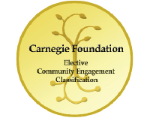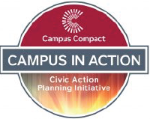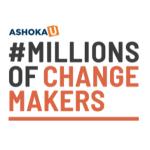Pathways for Civic Action and Social Change
For positive social change to occur, our communities rely on all of us engaging in multiple ways, along various pathways. This positive change creates conditions, access, and opportunities for everyone to have enough of what they need to thrive, which in turn creates healthier, more vibrant, equitable, and sustainable communities.
The Pathways for Civic Action and Social Change describe a range of possibilities by which we can be civically engaged in our communities and create social change, regardless of career/field of interest. We need people working within all of these pathways to create change, however one person does not need to be involved with each path - it's all about finding what you're interested in, or have knowledge and expertise in. You can also be involved in as many paths as you would like.
How will you work for a just, fair, and inclusive society?
Students have the opportunity to take a survey to help them identify their preferred strategies for creating change, and can meet with a Community Engagement Peer to discuss their results and get connected to the community.
Click here to see examples of how you can use the Pathways to create social change around specific social issues, with examples of how to get involved here at Drake and in the local Des Moines Community.
Hear from Drake students how they've been active in specific pathways.
The six pathways are:
Used with permission from Haas Center for Public Service, Stanford University
Contact us!
The Office of Community Engaged Learning would love to speak to your class or student organization about the Pathways for Civic Action & Social Change. We can cater to your specific goals and needs. Reach out to mallary.allen@drake.edu.
Careers in Social Change Panel Series
We have held a series of virtual career panels with professionals working in fields tied to the Pathways. You can view recordings from these panels here.










